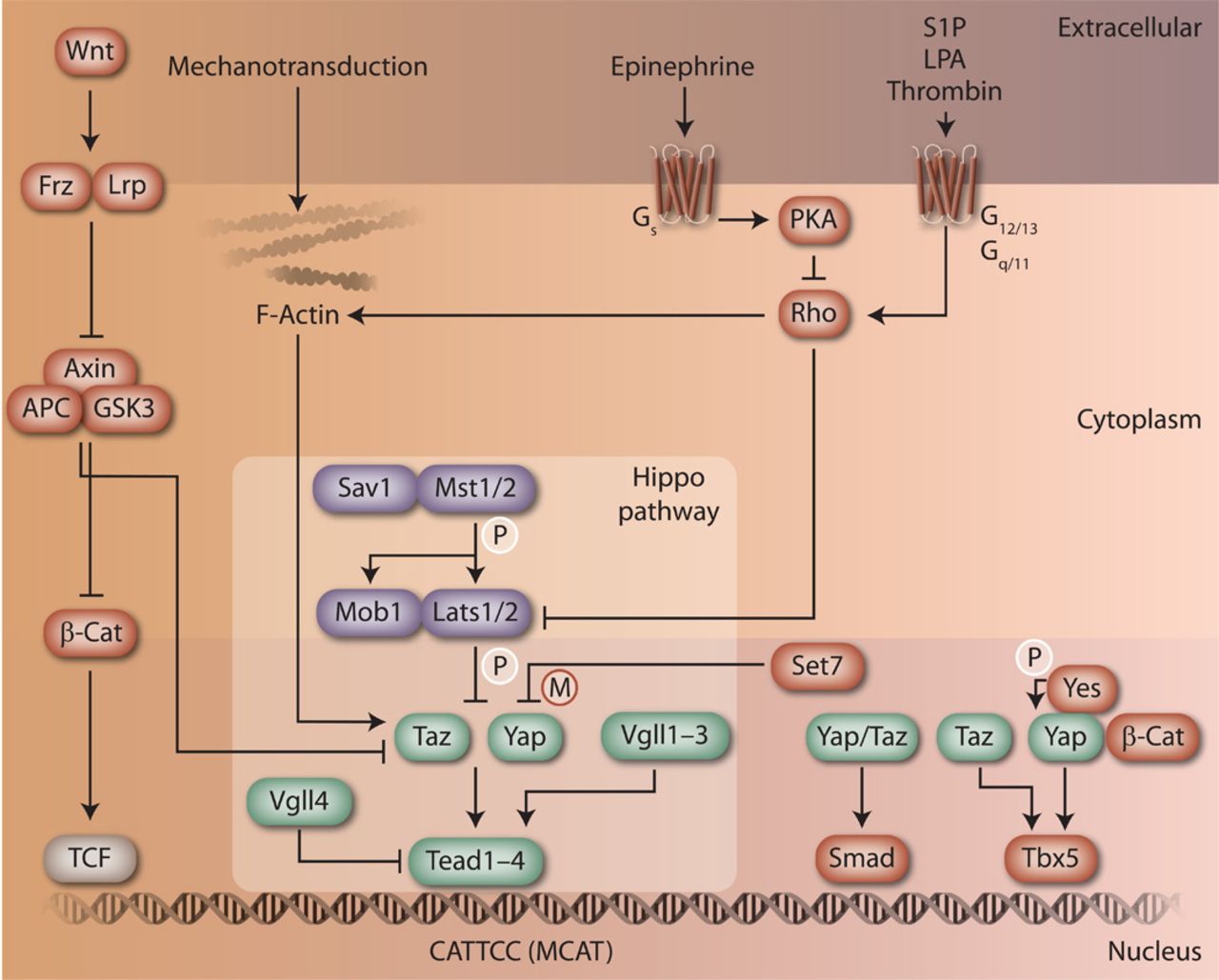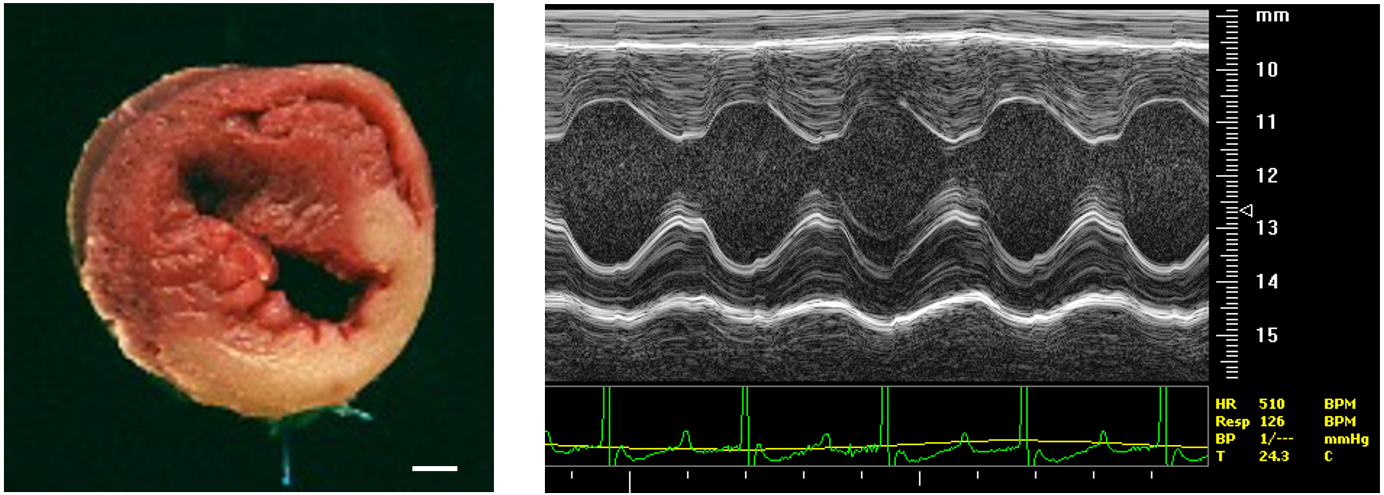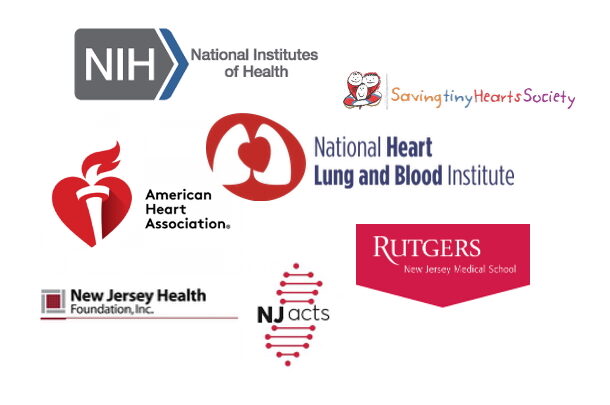Mechanisms of Heart Injury
A major focus of the lab is to understand how the signaling cascade known as the Hippo pathway – a fundamental and conserved growth control mechanism – influences heart injury, within cardiomyocytes and fibroblasts, as well as in extra-cardiac cell types. Our research group previously reported that Hippo signaling exhibits cell-type specificity, and can influence paracrine interactions between cardiomyocytes and other cell types within the heart. We use a combination of complementary approaches including tissue-specific gene targeting, adoptive transfer, and primary cell culture, to elucidate underlying mechanisms and identify novel potential target molecules that contribute to both ischemic and non-ischemic injury.




